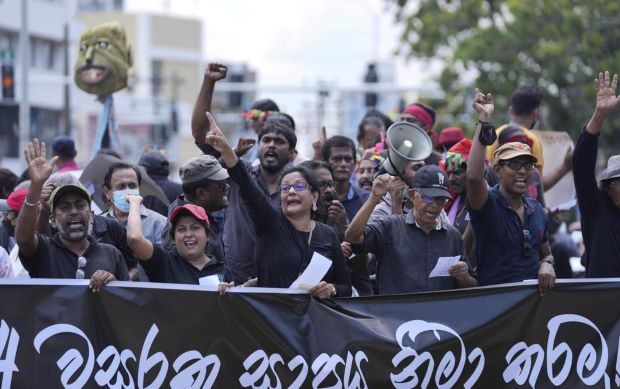Canada, UK and New Zealand issue travel warnings over Sri Lanka’s ‘civil unrest’
COLOMBO – In view of the wave of anti-government protests sweeping the island, Canada, the UK and New Zealand have all updated their travel warnings, telling citizens to “exercise caution” when travelling to Sri Lanka.
The Canadian government’s travel advisory warned its citizens to “exercise a high degree of caution.” On Saturday (2), the Canadian government also added a section of warnings titled “demonstrations and civil unrest,” cautioning travellers about Sri Lanka’s recent declaration of a state of emergency.
“The state of emergency will give local authorities the power to arrest individuals without a warrant,” the advisory stated.
Seemingly addressing the recent anti-government protests earlier this week, which started off peaceful and quickly turned violent after the Sri Lankan military attempted to quash the protests, the Canadian travel advisory stated, “Demonstrations occur regularly in Colombo, and occasionally elsewhere in the country. Even peaceful demonstrations can turn violent at any time,” and advised, “If you’re in Sri Lanka, expect a heightened security presence.”
Meanwhile, New Zealand in its advisory instructed travellers to “exercise increased caution” when visiting Sri Lanka, noting that local authorities had declared a State of Emergency on April 1,and also imposed rationing of electricity, “which has resulted in lengthy power outages”.
“There have recently been protests, demonstrations and political rallies relating to the economic situation. Future such protests could lead, whether intended or not, to civil unrest in Sri Lanka,” the advisory warned.
Meanwhile, New Zealand’s High Commissioner to Sri Lanka, Michael Appleton, tweeted, “Free speech and the ability to peacefully protest are cornerstones of all democratic societies, including Sri Lanka.”
The UK updating its travel advisory on Sri Lanka, noted that the Government of Sri Lanka had on April 1 declared a public emergency, and imposed an island-wide curfew from April 2-4, and warned its citizens that local restrictions, including further curfews could be imposed at short notice.
Noting that political rallies and electoral periods in Sri Lanka have seen isolated incidents of violence in the past, it warned travellers to avoid any political gathering or rally and be wary of spontaneous large gatherings.”
Recently, both the Canadian and UK governments faced backlash from Sri Lanka after updating their travel advisory to include information on Sri Lanka’s economic crisis. Earlier this week, Foreign Affairs Minister G.L. Peiris lashed out against the UK, accusing the government of singling out Sri Lanka for criticism.
In January, Canada updated its travel advisory to include warnings on Sri Lanka’s deteriorating economic situation. However, the Sri Lankan foreign ministry slammed the warnings, labelling them “erroneous and outdated” and stating it “[did] not reflect the actual situation.” Regardless of Sri Lanka’s claims, just months later, protests erupted across the island, shining a spotlight on the country’s deteriorating economic crisis at the hands of the Rajapaksa regime.
-TG/ENCL


